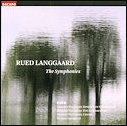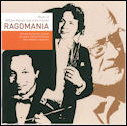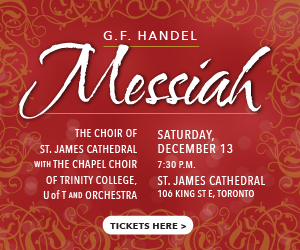 Rued Langgaard - The Symphonies
Rued Langgaard - The Symphonies
Danish National Symphony Orchestra,
Vocal Ensemble and Choir;
Thomas Dausgaard
Dacapo 6.200001
At one time, many music lovers and record collectors, including myself, believed that the record companies were archivists who (I say who because we thought of them as people), from the beginning of the 20th century had recorded and preserved the art of both performer and composer for the present and for posterity. There were performers whose name on the label, regardless of repertoire, translated to money in the bank, particularly for EMI, RCA and Columbia who had just about everyone and everybody of significance under contract.
As CD sales diminish, the majors’ output is almost exclusively artist driven. Today, it is the smaller, lesser known companies that explore new repertoire played by musicians who know and illuminate the scores. Except for Naxos, Chandos, and some others who conscientiously record new repertoire, companies, by and large, are merely replacing familiar repertoire with new performances. To record and issue works by obscure composers amounts to artistic heroism, no matter how they are funded. Such an undertaking is this omnibus collection of orchestral works by Rued Langgaard assembled from performances recorded from 1998 to 2008.
The ninth edition of The International Cyclopedia of Music and Musicians (1964, completely revised) has no entry for Rued Langgaard, the Danish composer who lived from 1893 to 1952. It does mention his father, Siegfried, a pianist and composer who had studied with Franz Liszt. Siegfried, it seems, was also immersed in Theosophy, a religious philosophy based on meditation and mysticism, which in turn was deeply embraced by Rued. His music attempts and, depending on the listener’s frame of mind, succeeds in conveying his belief in dimensional realities beyond empirical perceptions.
Langgaard was an ingenuously inventive and highly skilled composer and orchestrator. He was not a Stravinsky, a Schoenberg or a Shostakovich but his lack of originally is compensated by an ingenious and inspired invention within the established Late Romantic style.
His first symphony, written in 1911, was premiered by the Berlin Philharmonic Orchestra conducted by Max Fiedler. This hour-long work is already indicative of his later symphonic development and his individual rhapsodic, drama driven output, sounding for all the world like epic film scores which clearly puts him ahead of his time. This is certainly not a deprecating characterisation but these are the impressions of today, not then. A group of five named orchestral pieces of special character, deeply moving in the Liszt-Wagner genre, round out the collection.
Will Rued Langgaard’s career now take off? Will his symphonies become standard repertoire? Will musical dictionaries now enlarge their coverage? Will we hear his tunes whistled in the subway? Not a chance. But by the same token I commend the colossal and patient undertaking by DACAPO to bring Langgaard’s music to our attention in such superlative performances as these and their many other CDs and DVDs of the music of this undeservedly obscure composer.
This set is a generous appetiser. In addition to his symphonic scores, Langgaard wrote operas, music for the stage, chamber music including string quartets, etc.
I intend to explore his music further.
Bruce Surtees
 Ragomania - Music of William Bolcom
Ragomania - Music of William Bolcom
and Clare Fischer
Richard Stoltzman; Lancaster Festival Orchestra; Gary Sheldon
Marquis 81397
(www.marquisclassics.com)
William Bolcom, the eclectic American composer, is an enigma for me. Either I love his work or I just cannot fathom it. He draws on a multitude of sonic styles to construct his pieces, resulting in the ever present threat that a huge aural surprise is patiently waiting around the corner.
“Ragomania” features three works by Bolcom. The opening track of the same name is an interesting documentation of Bolcom’s musical experiments. Bolcom discusses his decision on a “heavy percussion part” in the liner notes. Buried in volume and sudden dynamic shifts, his music charm is sadly lost in the noise, in this first recording of the work. His Concerto for Clarinet and Orchestra is a three movement, well constructed work played with passion by soloist Richard Stoltzman and the Lancaster Festival Orchestra under the direction of Gary Sheldon. Undoubtedly, Bolcom’s Commedia for (almost) 18th-century orchestra is the highlight here. Drawing on commedia dell’arte, the orchestration was limited by the quasi 18th century type ensemble of the work’s 1971 commissioner, the St. Paul Chamber Orchestra. The snippets of ideas are fun and intriguing; there is never a dull musical moment here. No wonder Bolcom writes that is “by far my most-played orchestral work”.
The release is rounded out by Clare Fischer’s The Duke, Swee’Pea and Me. Using a number of Duke Ellington and Billy Strayhorn tunes as a basis, clarinettist Stoltzman gives a stellar rendition, whether playing his part or even more surprisingly, improvising.
Just like trying a new dish at your favourite restaurant, “Ragomania” is worth the effort of sampling the unique music of William Bolcom.
Tiina Kiik



